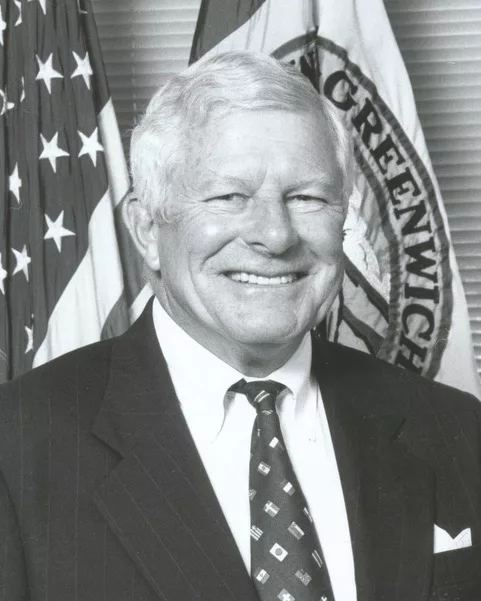
By Fred Wu
At the January 17 meeting of the RMA Bob Rimmer introduced Professor Arne Westad, a scholar of modern international global history of Eastern Asia since the 18th Century. Professor Westad addressed the history of Asian imperialism and today’s China, focusing on how China’s international reforms came into being and how their results have changed the global economy. He appeared via Zoom.
Early in his career Professor Westad focused on the Cold War, China-Russia relations, the history of the Chinese Civil War and the Chinese Communist Party, publishing works on China’s international history since 1750 and “The Cold War: A World History.” He has published 16 books on these subjects.
Westad joined the Yale faculty in 2019 as the Elihu Professor of History and Global Affairs where he teaches at the Yale history department and the Jackson School of Global Affairs. Previously, he taught at Harvard University, where he was the S.T. Lee Professor of US-Asian Relations and earlier at the London School of Economics (LSE), where he was school professor of international history. At Yale he is also an advisor at Davenport College and serves as director of international studies and the director of the Brady-Johnson Program in Grand Strategy. Professor Westad is a fellow of the British Academy and a visiting professor at Peking University. Professor Westad’s talk aimed to provide insights into the complexities of the US-China relationship and suggested measures to manage tensions and avoid potential conflicts.
It is not surprising that Americans think that China is getting ahead of the US and taking American jobs. China’s massive industrial espionage program of past decades harmed relations between the US and China. China remained a one-party government even after the Soviet Union collapsed. The Chinese Communist Party (CCP) was careful not to surrender any power even after it opened up China’s economy to market forces. The CCP always intended the resulting economic strength to increase its own power.
Things clearly began to change when Xi Jinping took office. His anti-corruption campaign was originally quite popular, but it soon became apparent that it was a power grab, aimed to weaken his political opposition. These are the main reasons why the US-China relationship has deteriorated.
The US needs to bear in mind two things: deterrence – we need to deter China’s ambitions in the region, especially the South China Sea. Deterrence has a good chance of working, but we must convince Xi that it is too risky to continue military build-up in the area. We also need to have better communication lines with China. We went for over three years without any direct military-to-military communications, which was very dangerous. Deterrence and communication are key.
We also need to convince the Chinese that we are not out to undo China’s economic prosperity. If ordinary Chinese get the impression that the US is trying to destroy their prosperity, that can lead to popular support for military conflict. The primary goal for the US regarding China should be to avoid war. We need to pay more attention to regional issues that can cause flareups. Of course, Taiwan is a case in point; we must convince China that an attack on Taiwan would be prohibitively costly to China. China must believe in US capability of assisting Taiwan to provide the deterrence.
The Q&A session following Professor Westad’s lecture covered several key topics related to China’s international relations and global impact.
Threats against Taiwan and other neighbors: While personal and economic ties between Taiwan and China still exist, they may not be sufficient to prevent a potential Chinese attack on Taiwan, as China is unlikely to give up its claims to sovereignty over the region.
China’s expansion of military influence is not expected to be significant, with a primary focus on controlling the western Pacific and Southeast Asian seas. The placement of Chinese military bases in foreign countries, such as in Djibouti, is seen as a response to perceived US national decline and concern about other countries’ actions. Westad stressed the importance of the US working with allies in the Southeast Asia region to deter China, as deterrence is seen as being in the common interest of these nations.
While closer ties between China and Russia are seen as potentially detrimental to world peace, it is also noted that their differing interests may prevent this relationship from ending well. While China’s economic support is crucial for North Korea, it does not necessarily translate into direct control over North Korean behavior.
We should strive for more balanced views among the Chinese through increased exchange of students to counter the one-sided narrative often presented to young people in China.
The recent purges of top Chinese officials are seen as potentially related to both corruption and political maneuvering, reflecting internal power struggles and concerns about Xi’s policies and their potential consequences. The significant lack of population growth in China is highlighted as a major concern, with the country set to become the first in human history to become old before it is rich.
The talk can be viewed by going to the RMA website at https://greenwichrma.org, and clicking on “Speakers.”
The RMA’s upcoming presentation, “After 80 Years the U. S. Merchant Marine Academy Looks to the Future,” by Vice Admiral Joanna M. Nunan, is scheduled for 11 AM on Wednesday, January 31, 2024. Joanna M. Nunan is the 14th Superintendent of the United States Merchant Marine Academy.
Established in 1943, the United States Merchant Marine Academy (USMMA) at King’s Point, Long Island, New York, is one of our nation’s five federal service academies. This federally-run service academy educates and trains students to serve as officers in the U.S. merchant marine, all branches of the armed forces, and the transportation industry. Civilian and federally-owned merchant vessels, which are key to the U.S. economy, serve as an auxiliary to the Navy in times of war. Many of these vessels are commanded by USMMA graduates. All graduates serve as commissioned officers in the Armed Forces and have the option of serving five years in the maritime industry with eight years of service as an officer in any reserve unit of the Armed Forces, or five years on active duty.
The Academy’s unique Sea Year experience augments its challenging coursework, providing midshipmen the opportunity to acquire hands-on, real-world experiences aboard working commercial or military vessels sailing to ports around the world.
In 2022 Vice Admiral Joanna Nunan was appointed as the first female superintendent of the USMMA. Previously she had spent more than three decades in the U.S. Coast Guard, commanding units at multiple levels both afloat and ashore. Her last two flag officer assignments were Coast Guard Deputy for Personnel Readiness and Assistant Commandant for Human Resources. In the latter role, she helped spearhead efforts to expand diversity and inclusion in the Coast Guard, including formulating policy changes focusing on increasing the retention of women in the service. She also served as a member of the Coast Guard’s Sexual Assault Prevention, Response, and Recovery Committee. Prior to that she served more than nine years at sea and was commander of the Ninth Coast Guard District, where she oversaw operations in the Great Lakes. She is a native of Bridgeport, Connecticut.
To stream the presentation by Vice Admiral Nunan at 11 AM on Wednesday, January 31, click on https://bit.ly/3GCS96i. This presentation will also be available on local public access TV channels, Verizon FIOS channel 24 and Optimum (Cablevision) channel 79.
Note: The views expressed in these presentations are those of the speakers. They are not intended to represent the views of the RMA or its members.
RMA speaker presentations are presented as a community service at no cost to in-person or Zoom attendees, regardless of gender. Any member of the public who would like to receive a weekly email announcement of future speakers should send a request to members@greenwichrma.org. The RMA urges all eligible individuals to consider becoming a member of our great organization, and thereby enjoy all the available fellowship, volunteer, and community service opportunities which the RMA offers to its members. For further information, go to https://greenwichrma.org/, or contact members@greenwichrma.org.




